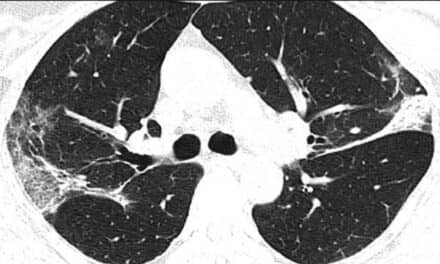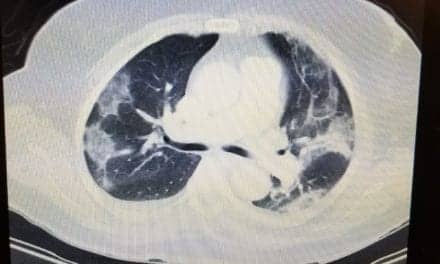The first COVID-19-associated case of acute necrotizing encephalopathy—a rare form of brain damage that typically follows an acute fever-causing disease, often a viral infection—was diagnosed in a 58-year-old airline worker at Henry Ford Health System in Detroit, according to a report in Neurology Today.
Elissa Fory, MD, who shared the details of the case with Neurology Today, said the patient was transported by emergency medical services to the emergency department in the Henry Ford Health System on March 19th with a fever, cough, and altered mental status. She was awake but not able to answer any questions outside of saying her name. She had been having symptoms at home for four days. Her condition has worsened over the two-week period, and she remains in critical condition.
The patient’s first CT scan showed bi-thalamic hypointensities; a CT angiogram of the head and neck were normal, Dr. Fory said. A CT-venogram showed normal flow in her deep and superficial veins. Due to fever and confusion, she had a lumbar puncture. The cerebrospinal fluid (CSF) was traumatic (showing evidence of some blood), and there were high proteins. The patient was growing more lethargic each day.
Henry Ford was one of the first hospitals to do onsite testing for the coronavirus, and the woman’s nasal swab came back positive on the second day of her hospitalization. Around this same time, a repeat CT scan showed worsening hypointensities in the thalami and new hypodensities spreading into the temporal lobes. Finally, MRI scans with and without contrast confirmed the diagnosis.
Read more from Neurology Today and find the paper in the journal Radiology.






